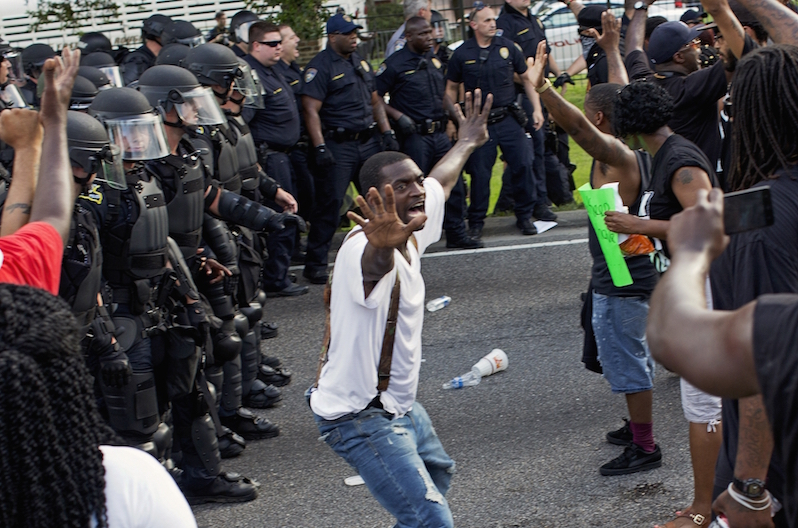Time for Progressives to Take a Stand Against Politics of Hate
The crisis over racism in America calls for something bolder and more single-minded than the laundry list of good ideas being tossed about by the Bernie Revolution. A man attempts to prevent a clash between police and protesters in Baton Rouge, La., earlier this month after a two-week period during which white police officers killed an African-American man and later a black man killed three officers. (Max Becherer / AP)
1
2
A man attempts to prevent a clash between police and protesters in Baton Rouge, La., earlier this month after a two-week period during which white police officers killed an African-American man and later a black man killed three officers. (Max Becherer / AP)
1
2
Independent journalism is under threat and overshadowed by heavily funded mainstream media.
You can help level the playing field. Become a member.
Your tax-deductible contribution keeps us digging beneath the headlines to give you thought-provoking, investigative reporting and analysis that unearths what's really happening- without compromise.
Give today to support our courageous, independent journalists.









You need to be a supporter to comment.
There are currently no responses to this article.
Be the first to respond.